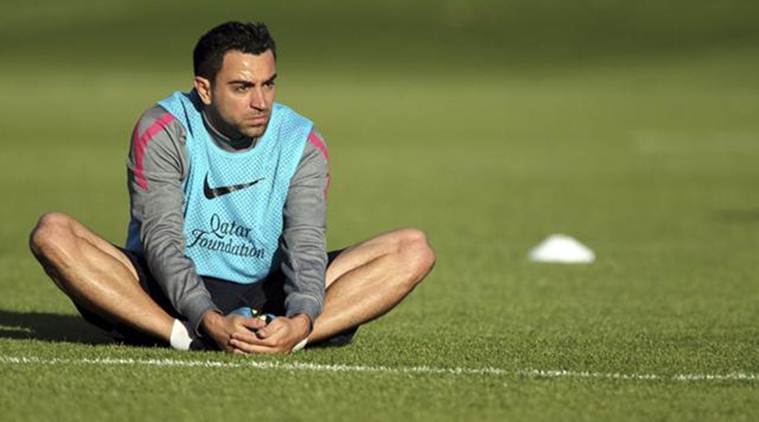
Xavi Hernandez remembers his first impression of football in Qatar. The former Spain and Barcelona legend moved to the Middle Eastern nation in 2015 to play for Doha-based Al Sadd in the Qatari top flight.
“I thought the football there was the worst when I first went there,” he says, flatly. “But they’ve improved a lot and very quickly since then, everybody saw it at the Asian Cup.”
At the continental championships in January, Qatar came up with a gripping performance that saw the team beat four former champions — Saudi Arabia, Iraq, South Korea and Japan — en route to winning it’s first ever Asian Cup title. And Xavi, who has been watching the team develop from close quarters, was not surprised.
“I know the players very well and I know they have a very good generation of players, talented players,” says the 39-year-old. “It all started from the Aspire Academy they set up in 2006. They’ve had a project in place, and they’ve gone and won the Asian Cup which is amazing and historic. And I know they are capable to do very well for the next competition.”
The ‘next’ event Xavi speaks of is the 2022 FIFA World Cup which will be held in Qatar. There is a lot of expectation from the 2010 World Cup winner from the Middle Eastern outfit, who will be competing in their first ever World Cup — becoming the first team since 1934 to qualify for the first time as hosts. But in the last four years the Spaniard has spent in the country, he has seen rapid development.
“Since I came to the country, a lot has changed,” he says in Mumbai, on the sidelines of World Cup promotional event. “It’s a new country to organise the World Cup. They are very excited and in my opinion they are doing well. They’ve been working towards it since 2010, so they had time and they still have time to organise everything. There’s a lot of work going on all over. They’re building railways, the infrastructure is really good, and it’s exciting to see what all is happening in Qatar just for the World Cup. You can see how football is changing the country.”
At present, FIFA is deliberating whether the 2022 edition of the event should be upgraded from a 32-nation competition to a 48-team tournament. Should the change be implemented, Qatar — who is constructing seven new stadia for the event — will have to share hosting rights with other Middle Eastern nations to accommodate the larger number of teams competing. Xavi however, is not keen on the idea of expanding the tournament.
“It’s better for the show, the spectators, even for the players,” he says. “It’s (48-team) too much and too long. Imagine 48 teams in Qatar, it will not be good in my opinion. It’s still for the organisers to decide, but for now Qatar is doing everything to prepare for 32 teams and it will be difficult to change it for more teams. Also, it’s good for football to have 32. That’s more than enough.”
Xavi considers himself an ‘ambassador’ for Qatar. And for a country that is looking to propel itself into the league of prominent football playing nations, in the eyes of one of the game’s greats, and with their recent achievements in mind, Qatar may not be too far from achieving that goal.